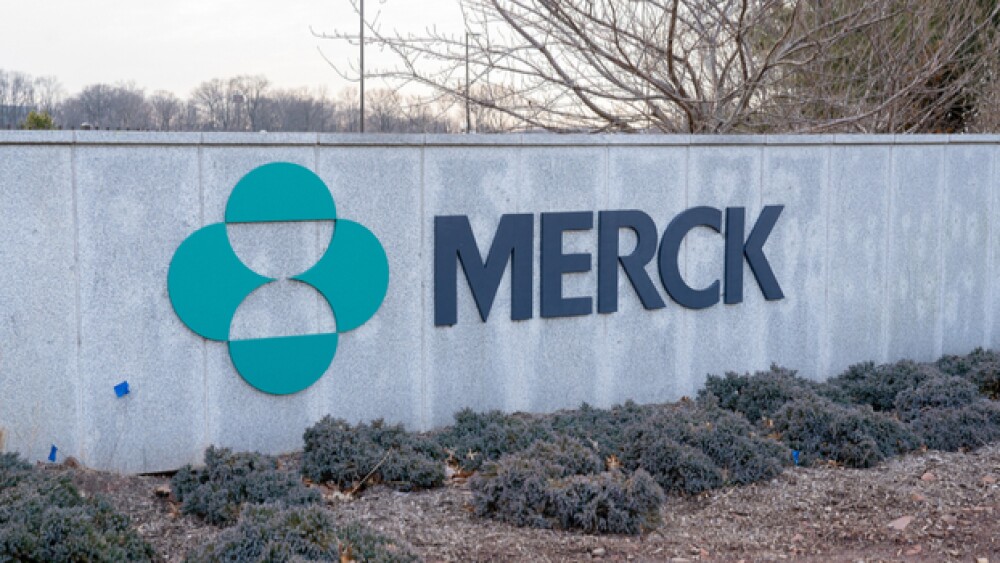Merck is buying all outstanding shares of Peloton, a clinical-stage oncology company, for an upfront payment of $1.05 billion in cash. Peloton will also be eligible for another $1.15 billion based on various regulatory and sales milestones.
JHVEPhoto / Shutterstock
Merck & Co. announced it is buying Dallas-based Peloton Therapeutics in a deal that could hit $2.2 billion.
Merck is buying all outstanding shares of Peloton, a clinical-stage oncology company, for an upfront payment of $1.05 billion in cash. Peloton will also be eligible for another $1.15 billion based on various regulatory and sales milestones.
Peloton’s lead candidate is PT2977, a novel oral HIF-2alpha inhibitor in a Phase II clinical trial for von Hippel-Lindau disease-associated development for renal cell carcinoma (RCC). The company is planning on beginning patient enrollment in a Phase III trial in patients with metastatic clear cell RCC that has been previously treated.
The drug is also being investigated in metastatic RCC in combination with a VEGFR inhibitor, cabozantinib, and in glioblastoma. The company also has PT2567 in preclinical studies for pulmonary arterial hypertension (PAH).
Just last week, Peloton announced an initial public offering (IPO) with plans to raise $150 million with a market cap of almost $750 million. The company is headed by president, chief executive officer and director John A. Josey, who joined the company in 2011. He had previously served at Array BioPharma as vice president, Discovery Chemistry.
“Merck is recognized as a leader in cancer research and shares our commitment to accelerating the development of candidates targeting HIF-2a to help patients with advanced cancers and other diseases,” stated Josey. “We are proud to have advanced PT2977 to this stage of development and believe that Merck is well suited to build upon the progress our company has made.”
Previous investors in the company included Eventide Asset Management, EcoR1 Capital, OrbiMed, Driehaus Capital Management, Vida Ventures, RA Capital Management, Biotechnology Value Fund, Curative Ventures, Foresite Capital, and Remeditex Ventures.
The company was founded in 2010 to develop drugs to treat cancer with a focus on the Hypoxia-inducible factor-2a (HIF-2a) transcription factor. HIF-2a is abnormally activated in several cancers as the result of the inactivity of the VHL tumor suppressor. The VHL inactivation is observed in more than 90% of clear cell RCC, the most common type of kidney cancer.
“This acquisition exemplifies Merck’s strategy to pursue novel therapeutic candidates based on exceptionally promising and innovative research,” stated Roger M. Perlmutter, president, Merck Research Laboratories. “Peloton scientists have applied their unique expertise in HIF-2a biology to develop PT2977, which has already shown intriguing activity in the treatment of renal cell carcinoma. We look forward to advancing this late-stage asset as part of our broad oncology R&D program.”
In separate news, Merck reported that its Keytruda failed to hit its primary endpoints in the Phase III Keynote-119 clinical trial. This evaluated Keytruda for a second- or third-line treatment of patients with metastatic triple-negative breast cancer. The primary endpoint was superior overall survival compared to chemotherapy.
“Metastatic triple-negative breast cancer is an aggressive and challenging disease to treat, especially after progression on initial standard-of-care treatment,” stated Roy Baynes, senior vice president and head of global clinical development, chief medical officer, Merck Research Laboratories. “While we are disappointed by the outcome of this monotherapy trial, we are continuing to study Keytruda in earlier stages of the disease and in combination with chemotherapy to address the unmet medical need of patients with triple negative breast cancer.”





